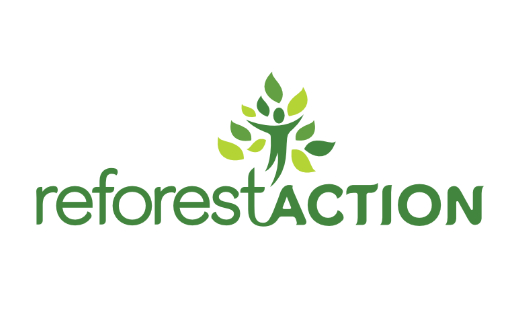

Reforest'Action

Île-de-France, France
October 2019
Environmental consulting
Service with Minor Environmental Footprint
Australia,
Belgium,
Brazil,
China,
Colombia,
Cote D'Ivoire (Ivory Coast),
Ecuador,
France,
Germany,
Greece,
Guatemala,
Haiti,
India,
Indonesia,
Ireland,
Italy,
Kenya,
Peru,
Poland,
Portugal,
Rwanda,
Senegal,
South Africa,
Spain,
Tanzania,
Togo,
United Kingdom,
United States
Reforest'Action is a company whose mission is to restore terrestrial ecosystems on a large scale, to meet environmental challenges. As a world player in reforestation and agroforestry, Reforest'Action designs and develops projects with multiple benefits for the environment and communities that are monitored and measured over time. The basis of its action is the multi-functionality of ecosystems to optimize their resilience and stability over the long term. Convinced that companies can be sources of regeneration for the living world, Reforest'Action aims to contribute to their transformation through nature-based solutions, enabling them to act within or beyond their value chain. Reforest'Action is mobilizing its strengths around the deployment of regenerative agriculture, the development of carbon projects and impact measurement. Since its creation in 2010, Reforest'Action has carried out over 1,500 projects in 45 countries, mainly thanks to funding from over 3,500 companies.
Overall B Impact Score
Governance 16.8
Governance evaluates a company's overall mission, engagement around its social/environmental impact, ethics, and transparency. This section also evaluates the ability of a company to protect their mission and formally consider stakeholders in decision making through their corporate structure (e.g. benefit corporation) or corporate governing documents.
What is this? A company with an Impact Business Model is intentionally designed to create a specific positive outcome for one of its stakeholders - such as workers, community, environment, or customers.
Workers 34.2
Workers evaluates a company’s contributions to its employees’ financial security, health & safety, wellness, career development, and engagement & satisfaction. In addition, this section recognizes business models designed to benefit workers, such as companies that are at least 40% owned by non-executive employees and those that have workforce development programs to support individuals with barriers to employment.
Community 21.4
Community evaluates a company’s engagement with and impact on the communities in which it operates, hires from, and sources from. Topics include diversity, equity & inclusion, economic impact, civic engagement, charitable giving, and supply chain management. In addition, this section recognizes business models that are designed to address specific community-oriented problems, such as poverty alleviation through fair trade sourcing or distribution via microenterprises, producer cooperative models, locally focused economic development, and formal charitable giving commitments.
Environment 34.9
Environment evaluates a company’s overall environmental management practices as well as its impact on the air, climate, water, land, and biodiversity. This includes the direct impact of a company’s operations and, when applicable its supply chain and distribution channels. This section also recognizes companies with environmentally innovative production processes and those that sell products or services that have a positive environmental impact. Some examples might include products and services that create renewable energy, reduce consumption or waste, conserve land or wildlife, provide less toxic alternatives to the market, or educate people about environmental problems.
What is this? A company with an Impact Business Model is intentionally designed to create a specific positive outcome for one of its stakeholders - such as workers, community, environment, or customers.
Customers 2.0
Customers evaluates a company’s stewardship of its customers through the quality of its products and services, ethical marketing, data privacy and security, and feedback channels. In addition, this section recognizes products or services that are designed to address a particular social problem for or through its customers, such as health or educational products, arts & media products, serving underserved customers/clients, and services that improve the social impact of other businesses or organizations.